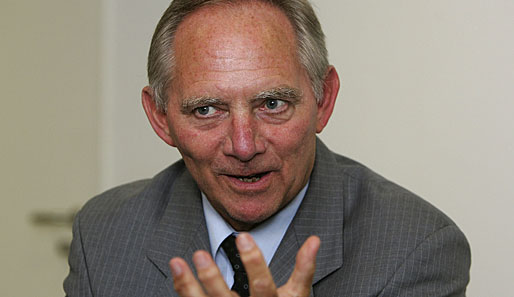SPIEGEL: Last week, the US Federal Reserve Bank decided to flood the economy with $600 billion in new money. Will this stimulate the economy as hoped?
Schäuble: I seriously doubt that it makes sense to pump unlimited amounts of money into the markets. There is no lack of liquidity in the US economy, which is why I don't recognize the economic argument behind this measure.
SPIEGEL: The US wants to depress the value of the dollar in this way, so that it can sell its products abroad more easily. In light of the ailing US economy, isn't that a completely reasonable strategy?
Schäuble: No. The Fed's decisions bring more uncertainty to the global economy. They make it more difficult to achieve a reasonable balance between industrialized and emerging economies, and they undermine the US's credibility when it comes to fiscal policy. It's inconsistent for the Americans to accuse the Chinese of manipulating exchange rates and then to artificially depress the dollar exchange rate by printing money.
SPIEGEL: The G-20 nations will meet in South Korea this week to discuss the condition of the world economy two years after the deepest financial and economic crisis since the war. When the crisis erupted, the international community reacted with astonishing unanimity. But now many countries are trying to achieve advantages by influencing their exchange rates. Are you worried about a worldwide currency war?
Schäuble: I don't believe in such belligerent terms, but it's obvious that the global economy is in a tough situation. This is due to the enormous national debts many countries have taken on while fighting the crisis. Reducing these deficits is the primary objective, as the G-20 countries decided at their most recent summit in Toronto, where everyone, including the United States, agreed to cut their deficits by half by 2013. We should stick to these decisions, and if we do we will be able to curb unrest in the markets.







